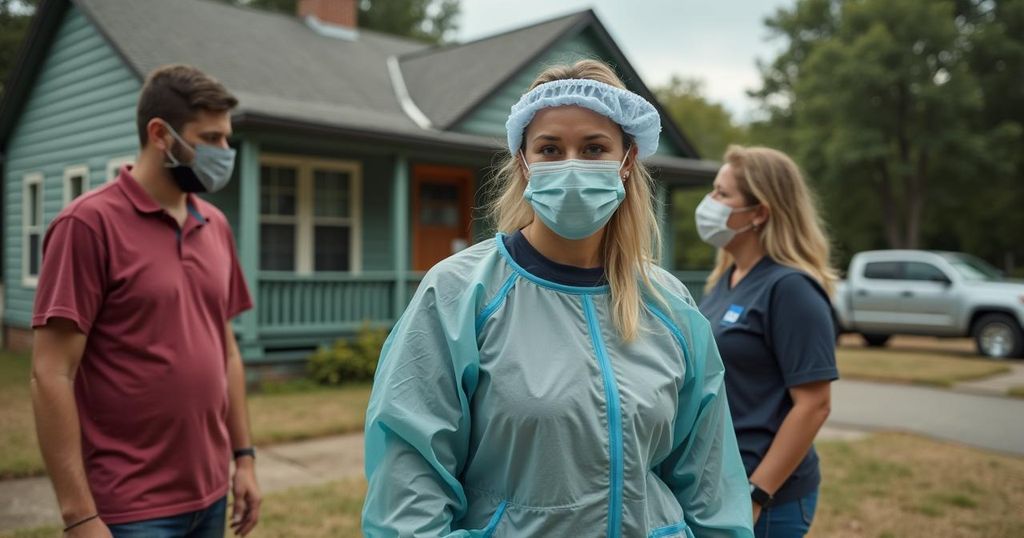Aid distribution in North Carolina communities impacted by Hurricane Helene was temporarily halted due to threats against FEMA responders. Sheriff B. Phil Howell announced the pause of in-person applications in Ashe County, prompted by concerns arising from armed militia reports. The federal response to the disaster has also been challenged by misinformation, necessitating increased governmental communication efforts.
Assistance to several communities affected by Hurricane Helene in North Carolina was temporarily suspended due to reported threats against Federal Emergency Management Agency (FEMA) personnel. As a precautionary measure, some FEMA operations were halted in Ashe County over the past weekend, as relayed by Ashe County Sheriff B. Phil Howell via Facebook. Aid applications in at least two locations were paused following incident reports involving threats in various counties. The resumption of these services was anticipated by Monday. Sheriff Howell has urged community members to maintain composure during the recovery period and emphasized the importance of mutual support without spreading unrest. Ashe County, located near the borders of Tennessee and Virginia and northeast of the severely impacted Asheville area, experienced significant damage due to flooding and landslides exacerbated by Hurricane Helene, which made landfall in Florida last month and resulted in over 100 fatalities and immense destruction across North Carolina. On the preceding Saturday, FEMA workers in Rutherford County, to the southeast of Asheville, were compelled to pause their efforts after National Guard troops reported facing an armed militia threatening the FEMA staff, as confirmed in an email forwarded to federal agencies, as noted by the Washington Post. The authenticity of the reported threat remains unclear, and inquiries have been made to FEMA for further details. Consequently, FEMA teams opted to operate from fixed locations rather than conducting door-to-door outreach for enhanced safety. Furthermore, the dissemination of misinformation regarding the federal response to Hurricanes Helene and Milton has hindered recovery efforts. President Joe Biden requested an update last week on how the federal government aims to address misinformation. A senior official from the Biden administration remarked, “The contours of this misinformation are unlike anything we’ve seen before.” In response, senior U.S. officials have directed public affairs teams at federal agencies to increase social media engagement, showcasing federal workers actively involved in debris clearance and aid distribution. In earlier statements, Kerry Giles, the public information officer for Rutherford County, indicated that efforts to debunk rumors had diverted resources that could have otherwise facilitated recovery initiatives. The counties impacted have been proactive in posting photographs and information about their assistance efforts to counteract the spread of misinformation, as reported by CNN.
In the aftermath of Hurricane Helene, North Carolina communities experienced significant challenges, including fatalities and severe infrastructural destruction. With the humanitarian response led by FEMA, threats against personnel conducting aid operations specifically in Ashe and Rutherford Counties led to heightened precautions, causing key assistance programs to be temporarily suspended. Misinformation regarding the federal response has complicated recovery efforts, prompting public officials to enhance communication strategies and combat false narratives regarding the assistance being provided.
The suspension of FEMA aid in areas affected by Hurricane Helene highlights the complexities of disaster recovery efforts, particularly when faced with threats and misinformation. The cooperation between emergency services and community members remains critical as recovery operations resume, and efforts to effectively communicate the truth about federal assistance continue to be of utmost importance in safeguarding the recovery process in North Carolina.
Original Source: www.cnn.com







